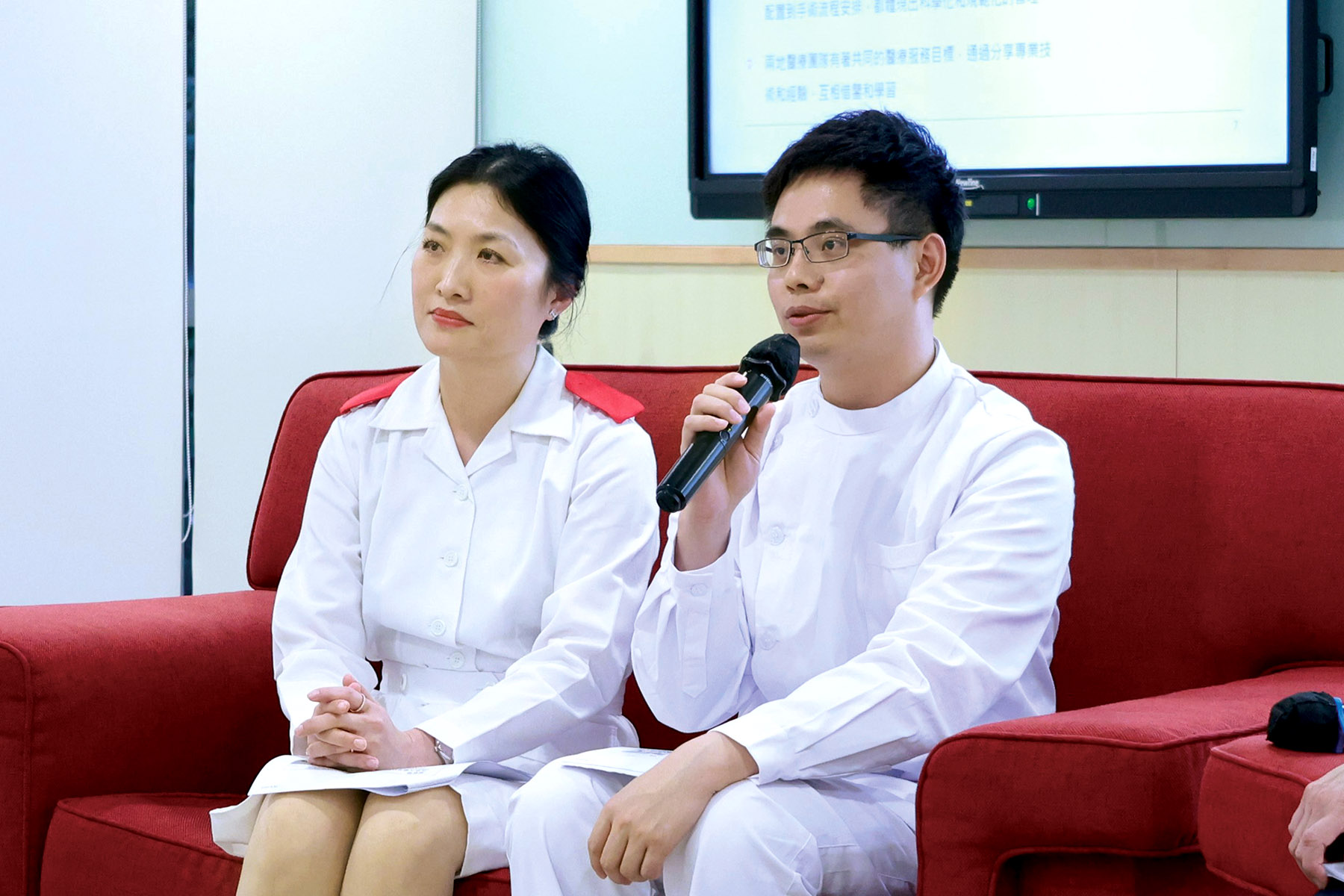
Hong Kong is considering sending some of its nurses to Guangdong province in an exchange program, as the special administrative region is set to welcome the third batch of 130 nurses from its northern neighbor under the program.
The northbound exchange, to be provided to Hong Kong nurses, aims to help them learn cases that are rarely seen in the city, the city’s Hospital Authority said.
At a media conference on Thursday morning, the city’s hospital regulator said it plans to send local nurses for short-term clinical exchanges in Guangdong hospitals.
The authority said it hopes that local nurses will get the chance to work at the pediatric surgery and cardiothoracic surgery departments, as diseases dealt with in Guangdong are rarely seen in Hong Kong.
The authority said it also hopes that Hong Kong nurses will be able to work in stroke treatment centers and public breast milk banks in Guangdong to gain experience.
Follow-up arrangements will be made after discussion with Guangdong authorities, the hospital regulator said.
Meanwhile, about 130 mainland nurses will participate in the third batch of exchanges under the GBA Specialty Nursing Knowledge-Exchange Programme, and will work in Hong Kong’s public hospitals after the current batch of nurses complete their turn in January, the authority said.
The nursing exchange program, along with similar arrangements for doctors, traditional Chinese medicine practitioners and radiographers, make up the Guangdong-Hong Kong-Macao Greater Bay Area Healthcare Talents Visiting Programmes.
Launched by the authority in 2023, the wider program aims to deepen professional exchanges of healthcare workers in Hong Kong and Guangdong, and to foster the development of public healthcare services in Hong Kong and the mainland.
So far, two batches of mainland nurses have participated in the nursing exchange program. The second batch of about 100 nurses, whose participants have an average clinical experience of nine years, arrived in Hong Kong at the beginning of this year. Their exchange will last 10 and a half months, until January.
Danny Tong Wah-kun, the authority’s chief manager for nursing, said nurses in the second batch comes from 14 cities across Guangdong.
In addition to geriatric and internal medicine departments — where the first batch of 70 mainland nurses work — they have been deployed at departments such as intensive care units, gastric surgery, ophthalmology and endoscopy, Tong said.
The mainland nurses and their Hong Kong mentors and workmates agreed the exchange program boosts understanding between the two places, and the cooperation is pleasant without many difficulties.
Samspon Chan, associate nurse consultant from Ruttonjee & Tang Shiu Kin Hospitals, said his hospital has assigned a mentor for each of the mainland nurses who are working at its intensive care unit to teach them procedures of hospital admissions and the work of the intensive care unit.
Chan said he has also learned a lot from mainland nurses, including the mainland’s nursing services, the development of smart hospitals, the application of ultrasound in clinical cares, and the assessment standards of mainland hospitals.
Su Zhiqiang, a nurse from Guangzhou’s First Affiliated Hospital of Jinan University, said that Hong Kong hospitals prioritize patients’ experience and feelings during treatment and hospitalization.
Renee Yip, nurse consultant from New Territories West Cluster, said although the working languages in Hong Kong and mainland hospitals are different, nurses participating in the program and the Hong Kong hospitals they are working at have made adequate preparations in the early stage to reduce miscommunication.
Yip added that the mainland nurses are adaptable, experienced, and very professional.
Mo Minhua, a nurse from Peking University Shenzhen Hospital, said she met little difficulty in adapting to Hong Kong, as medical devices in Guangdong and Hong Kong are basically the same. She also shared the mainland’s specialist nursing practices with her Hong Kong colleagues and introduced them to the electronic information system that mainland hospitals use.
Contact the writer at stephyzhang@chinadailyhk.com


